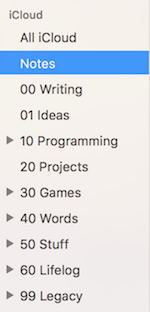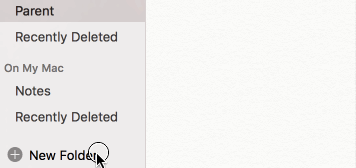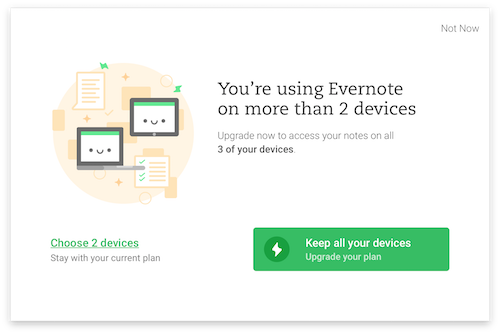You might have heard lots of successful stories about kids growing up in families in which the parents speak more than one language, those kids mastering 2 languages effortlessly like second nature. To some extend that might even feel like cheating. Well, I can assure you one thing - you won't see that in this story.
Continue reading...
I was born and raised in China, same as my parents; we are Chinese Korean - descendants of Korean emigrants who now live in China. There're about 2 million of us, mostly spread in northeast China. We're referred to as Chaoxian-zu (朝鮮族) in Chinese.
I was taught Chinese and Korean. I don't have any memories before 4 years old, but according to sound tapes from my early age, I was able to recite Chinese poetry and sing Korean songs. But my dad said I mix the two languages a lot, like attaching a negative prefix from Chinese to a Korean adjective, as if I thought I was speaking one language. Those days were easy. Little errors were not a problem, and my parents were happily celebrating my growth. That is one of the perks of being a baby.
My dad is the evangelist in the family who treats the Korean heritage seriously. The family tree of my dad traces up to hundreds of years, and he is so proud of it. Among the many fantasies he has for me, the least he expected was that I would not speak Korean.
Sadly, things didn't go well for him.
My mom always talked to me and my dad in Chinese. And I was surrounded by friends of Han Chinese (汉族, the largest ethnic group, statically 92% of Chinese are Han). I didn't feel any different. We played together, I had no problem speaking Chinese to them. That language already climbed up and became dominant inside of me.
My dad was more than angry, I guess I could call that furious, about me only speaking Chinese at home. I remember a scene vividly: I was crying at the dining table while my dad yelling at me, "No food for you if you don't speak Korean! Say it, say you want to eat, in Korean!" He realized that if he didn't do anything, I might end up in the other side he didn't want me to be.
For this, my dad had blamed my mom a lot. He said she was a bad example, of not speaking Korean at home and that was why I followed her path. Mothers have a significant impact to their children, and she should understand that. Thus, my parents fought a lot. I wondered why my dad married my mom in the first place.
I couldn't understand why suddenly I was not allowed to speak Chinese, when that was ok before. Although I could understand Korean without a problem, it was never the language I wanted to speak, as the only audience was my dad. Maybe that would be hard for a 4 year old boy to understand the importance of Korean heritage.
My resentment kept growing. More and more such encounters followed up, and it brought these questions to me: Why I wasn't just a normal Chinese, like the boy next door? Why I was born as a Chinese Korean? Why I was not allowed to speak the language I knew the most? Why must I suffer like this? When would all of this come to an end, if there is one?
I hated it. I hated it with all my passion. I even cursed my ancestor, more than once.
I desperately needed a way to channel that hatred.
Take one step back, it wasn't just me who struggled with this identity crises. How to avoid children from being swallowed by this "Han Chinese vortex" had been a major issue for my dad's generation. You know, we have our own languages, names and traditions, but we are clearly in the process of being "localized."
Chinese Korean who lived in the countryside fared slightly better than those in the city. In the city, Chinese Korean were spread among the dominant Han people and were outnumbered, whereas in the countryside, they tended to live together, similar to a tribe. That provided the strength to hold up the tradition, hence Korean was their day-to-day language. That was a significant difference.
My mom is from the city. That explains everything: her education, friends, work, social life and home language are all in Chinese. My dad is from the countryside, he has fought his way to the city (back in the day that was quite an achievement in China), and still kept the strong tradition, but that didn't unfold well for our family.
After I attended a Chinese Korean elementary school, where both Korean and Chinese were taught, in that specific order, I found more fellow classmates who shared the same pain. We city boys disliked the Korean lesson, we even made fun by calling it "The Demon," because the lesson name 어문 ("uh moon" - National language) in Korean, shares similar pronunciation 恶魔 (è mó - Demon) in Chinese. That was quite bizarre; where we could read and write in Korean, but never used it voluntarily to anyone or in any context, except in exams.
Visiting relatives in countryside was more than mundane but a painful experience. A simple greeting in Chinese like "Hello Aunt!" was considered inappropriate, disrespect and rude.
My dad was ashamed of my behavior. I became silent.
Then in junior high school, I realized that I didn't even know how to exchange greetings in Korean properly. Teachers didn't teach me these manners, and I couldn't recall if my dad had taught me how, or he if did I had shut the door to my brain subconsciously. I felt humiliated to ask, and indeed humiliated by him when I did ask. I could only bear the lectures from my dad every time. I wasn't proud of myself either. But I've got to tell you this, a twisted feeling emerged; there was a sense of victory whenever I saw my dad fired up. In my mind, I thought "You just say whatever you want, I won't get hurt by you anymore."
I guess I had already given up on myself. "I'm just a failure to you, alright then." That was the narrative.
My dad considered transferring me to a countryside school, where the students were less "Han-ized." Even though the education level was less vigorous, he still considered that possibility. About ten years later, when I already started my career as a software engineer in Japan, one day my dad suddenly called me and dropped a bomb out of nowhere: "Forget about your career, go to Korea for 2 years to master the language. How dare you throw away what our ancestors started centuries ago?! And end in your generation?! Such a shame! You're the disgrace to our family!"
I knew my dad had good intention, but every time he pushed me, he only pushed me away.
How does my dad picture himself back then? What is his identity? His physical form is trapped in China, but spiritually he always wants to be in our ancestors' home - Korea? Or has this Chinese-Korean forged into distinctive ethnicity that is neither full Chinese nor full Korea? I mean, who are we? These questions still pop up constantly inside.
Watching football was one of the few things I recall as "bonding time" for us. I loved to yell with him at every shoot, analyze the situation, celebrate victory and exchange opinions over the long-running league. Once, we woke up in the middle night to watch the 1999 UEFA Champions league final match. Bayern Munich led 1-0 the entire game but Manchester United never gave up; they scored 2 goals in the last injury time and became the champion of that year. That was my sweetest memory with him, we went absolutely crazy. In the end, he didn't forget to remind me that "never give up" spirit as a life lesson, but he had no way to hide that big smile from his face, as if we were in the same age, as if we were, friends.
The bonding through football was great, but when it came to Korea vs. China, it was totally different story. My dad rooted for Korea for sure. You know football casters tend to be super biased toward their national team - like Apple attacking Android at their conference and vice versa. I hated both. I hated the Chinese casters over-glorifying the team, and I hated Korean casters making fun of the Chinese players. I simply expected a great game out of the 2 teams, but my dad's zealous support of Korea made me extremely uncomfortable.
That wasn't the first time I saw my dad fighting against - I guess I could say - China (the country) and Chinese (the people). Growing with the same Chinese Korean friends from elementary to high school, I had no chance of experiencing discrimination from the Han people. But I did know swear words from each side to describe the other. My dad worked at a government organization, had countless encounters of being "showed the door" from some meetings because he is Chinese Korean. "Nothing personal," the head of the bureau kindly added. There were definitely some significant conflicts between the two groups, not that harmony I learned from school.
But my dad didn't blindly love Korea the country, or the Korean people either. There is a Korean town in Shenyang (my hometown) called Xita (西塔), where once my dad was invited as a translator to a conference for Korean businessmen. I remember that day he came home, his voice and body was shaking with insult and rage. "Those bastards think they're superior, they treat us like shit!"
It turned out that after a whole day of business meetings, the Korean businessmen wanted "night life entertainment," and they wanted my dad to take them to those places. "Sorry, I didn't sign up for this" my dad rejected. And that triggered their hidden contempt towards the Chinese, including us Chinese Korean, to the max. Those businessmen were only rich-in-money, some had lovers or even illegitimate children in China, and all night clubbing was the norm for them.
I've never sensed any desire from my dad that he wants to move back to Korea, even after his trip to our ancestors' hometown in Korea. I guess what lies in his core belief is the admiration and worship to the heritage and family tree itself, it doesn't necessarily tie to a place or a nation.
As for me, despite all of the hatred I held toward Korean, I was super proud of my name, the name my grandpa gave me, not that long before he passed away. I inherit this typical Korean family name 朴 (박, Park), and my grandpa looked through various dictionaries and finally picked up my first name 起煥. I love it from every possible way: the pronunciation in Chinese and Korean, the Chinese character, the meaning behind it, the balanced hieroglyph. The first syllable is kind of soft and subtle but the power is carried forward, and the next syllable gives it a delightful burst. It is perfect to me, and is perfect for me. I confess I'm a narcissist on this.
Then my journey of seeking my identity had its Chapter 2 after I went to college.
I started a part time job in the biggest Warcraft 3 game news website in China, I was responsible for finding and translating news from Korean websites to Chinese. I was super committed to it - I love the game myself and also love to be able to spread the information to more people with my own words. It fulfilled my desire of gaming and writing/journalism, Korean language itself was a mere tool for me.
Back in the day, there were no TwitchTV, no YouTube or any other live streaming things yet. Normally a big grand final match happened in Korea - the most advanced country in eSports - the world knew the result afterwards. One day my boss asked me if I could find a way to do it in real time. I found the editor's email form the Korean website, composed an email to him and introduced myself and the possibility of collaboration.
I was sure that my Korean business email writing was terrible, that thing I had never learned from anyone. And I wasn't sure if the editor in Korea would get my idea, or if he would like to take the request. There came the reply, so touching and full of excitements! He called me 교포 (Korean diaspora), and was fascinated by the idea 우리 (meaning "we" but stronger bonding) not just found each other but also were working on the same thing! He shared an internal account with me to watch the final match online. I was the only one who could watch it realtime outside Korea in the world.
Then the final game started. I wasn't translating. I was watching it and writing as fast as possible to "live streaming" the game, through plain text. Our website barely held up - entire Warcraft 3 fans in China were watching me. It was like the whole nations' football fans were listening to the radio for World Cup final match, only slower and the radio was the words written by me.
I was thrilled.
That first contact to the editor was the first time in my life, that I wanted to use Korean to start a real conversation with someone. Until then I was only obliged to speak Korean to my relatives, my teachers, in my school exams. That moment, when I truly connected with someone far away on the internet with the language I had been taught for 20 years, that was fantastic! It was like my built-in Korean genes had slept for the entire time finally got awakened, it was a deep and ancient feeling, I could tell the warmth flowing in my blood, every heart beat only pumped more excitements. That was such a profound pleasure, it showed me where my roots was, gently, softly and powerfully. It was absolutely beautiful.
It struck me permanently that I was hating the wrong thing. It was not the Korean language, in fact, I love it with my every single bone and gene!
I hated the way it was forced upon me, brutally. I hated it was presented as if it was some kind of sins if I didn't speak in Korean, I hated when I asked for helps but only got humiliated. I wish I could have got a better "sales pitch" - that demonstrates how beautiful the language is, with some patient for the little kid to catch up.
Now I'm living in Japan, I could imagine that kind of desire to pass down your heritage to your children, the language, the tradition, especially when you're the minority and in another totally different environment. If one day I will have kids, I hope whatever I'm carrying on will eventually enrich their lives rather than make it more complex.
(Children inevitably find their ways to blame their parents. That is absolutely true. But the intention of this post is not to redirect all my flaws, my inabilities to my dad. The purpose is to represent you the story, my story of how a Chinese Korean lived in China, the struggle, the doubts and somewhat the self realization.)




 alt=)
 alt=)
 alt=)